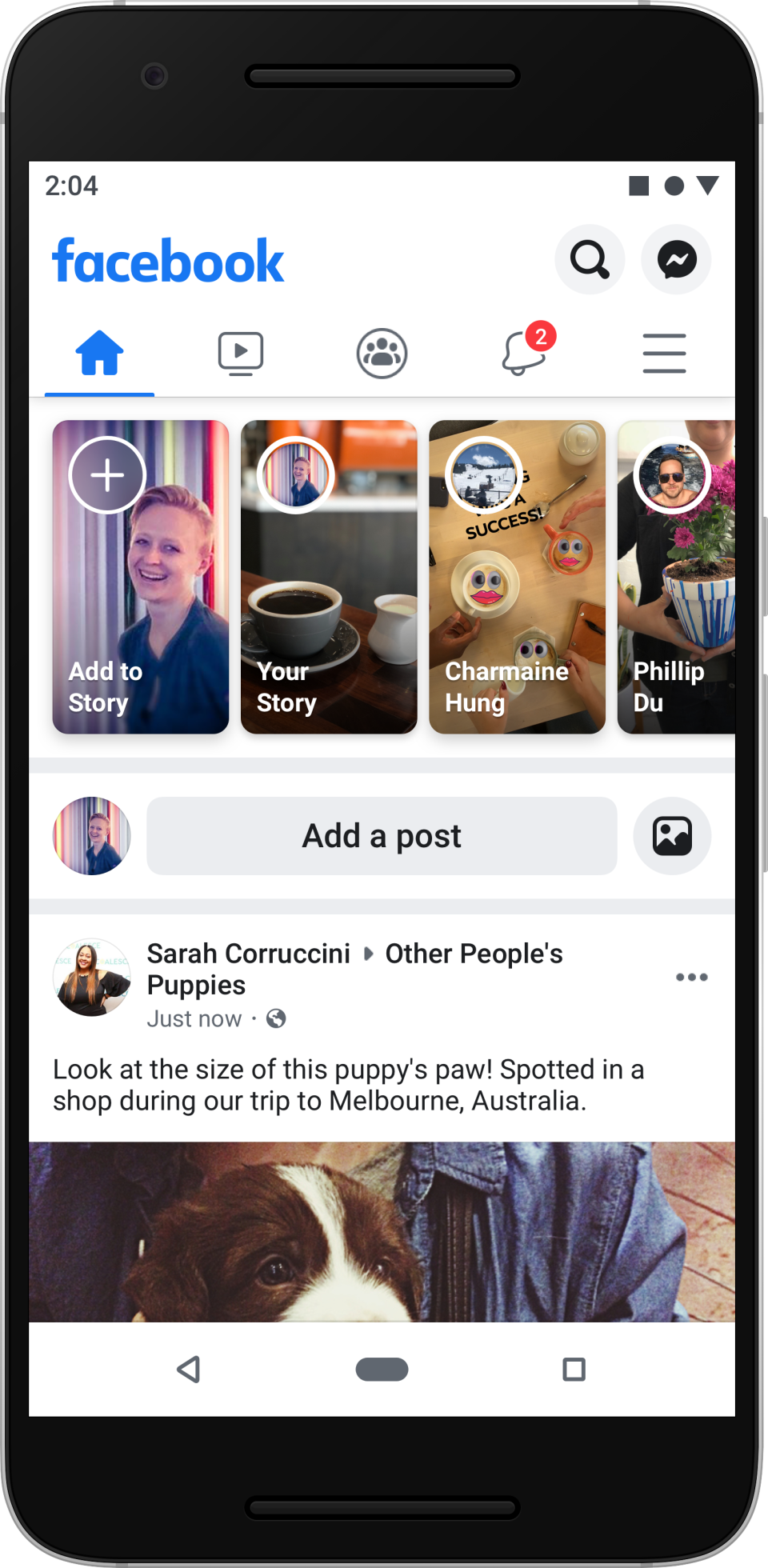Facebook's redesign raises new questions about privacy
Facebook (FB) this week announced a redesigned desktop website and smartphone app that puts its groups feature at the center of the social network’s experience. But making groups a more prominent fixture on the social network may be cause for concern, say privacy experts.
The updated version of Facebook for mobile and desktop, referred to as “FB5,” emphasizes users’ communities, or groups, on the app and website, according to Facebook, which unveiled the new website and app designs this week at its annual F8 developers conference in San Jose, California. But three data privacy experts Yahoo Finance spoke to raised concerns that the added emphasis on groups may prove another opportunity for Facebook to mine more user data for its benefit.
“While these smaller groups may seem more private in the sense of having a smaller set of eyeballs, Facebook is still very much looking on and can gather even more intimate details from these groups than users’ profiles or the News Feed, because users will be more comfortable sharing information,” says Dylan Gilbert, a policy fellow for Public Knowledge, a Washington, D.C.-based nonprofit that promotes an open internet.
A timely redesign

The redesign news arrives roughly two months after CEO Mark Zuckerberg published his vision for “privacy-focused” messaging and social networking in a blog post. Over the last year or so, the social network has dealt with a number of user data privacy scandals, including the Cambridge Analytica scandal in March 2018, in which it was revealed that voting firm Cambridge Analytica had access to up to 87 million Facebook user accounts. In the months since, Facebook has been in damage control mode, updating and adjusting its developer and user policies, rolling out new features and answering to regulators. Facebook is expected to pay a record $3 billion to $5 billion fine for potentially violating a 2011 consent agreement with the FTC, which required that the social network abide by a "comprehensive privacy program" and get the "express consent" of Facebook users before sharing their data.
In his blog post published in early March, Zuckerberg added that groups, private messaging, and ephemeral stories were three of the fastest growing areas of online communication. Over 400 million of Facebook’s 2.38 billion monthly active users participate in groups, where users come together around common interests, from discussing the ins-and-outs of “Avengers: Endgame” to trading cute pet photos.
Facebook does track certain, unspecified signals about users and groups, including which groups users are members of. Using those signals, Facebook can recommend other Groups and Pages users may also be interested in. In doing so, and by Facebook emphasizing groups in its redesigns, the social network clearly hopes to boost user growth and engagement, which has slowed in more recent quarters.
Taking privacy seriously?
Facebook, for its part, denies the redesign’s emphasis on Groups is a pure monetization play.
"We take protecting people’s privacy very seriously, and do not allow advertisers to target people based on people’s conversations on Facebook, including in Groups," a Facebook spokesperson tells Yahoo Finance.
However, Daniel Herdean, CEO and co-founder of the data analysis product and services company Cognetik, contends the Groups-focused redesign puts Facebook in a better position to build richer data sets about its users, even if that data isn’t explicitly used for targeted advertising, which is Facebook’s core business.
“They [Facebook] are expanding their data sets, so from a business perspective, this is actually a really genius move for Facebook that makes so much sense to me,” says Herdean. “But it's also kind of alarming at the same time, in the sense that with groups at the center, they can keep growing in terms of engagement.”
Todd Shollenbarger, chief global strategist at the identity authentication firm Veridium, says Facebook’s desktop and mobile redesigns raise fresh questions.
“In the face of much criticism, Facebook has recently taken the position that they are genuine advocates of protecting the privacy of its users, but the recent redesigns provide a barometer for testing Facebook’s genuineness,” Shollenbarger said.
“Specifically, will Facebook recognize that the data being collected belongs to the individuals? Or, will it provide people with meaningful control over their data?”
Those are questions Facebook must try to answer as it continues to navigate privacy issues with its users and government officials in the months to come.
More from JP:
